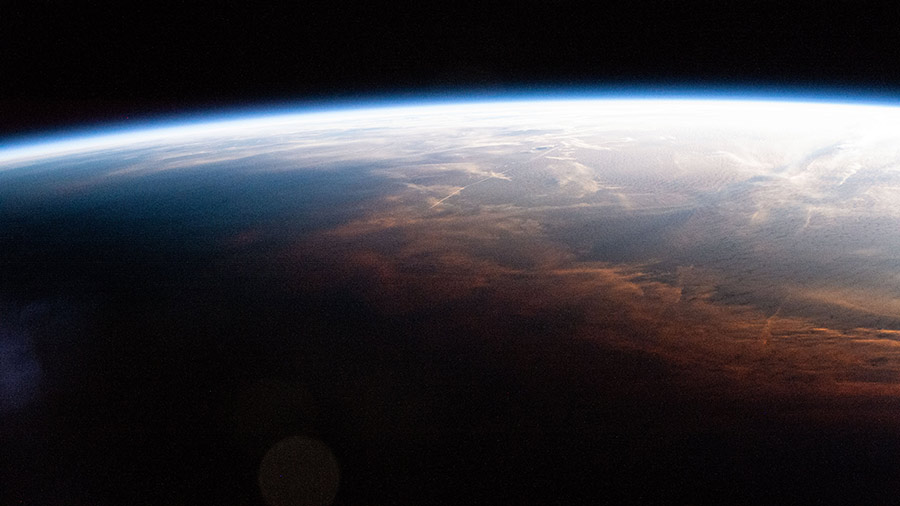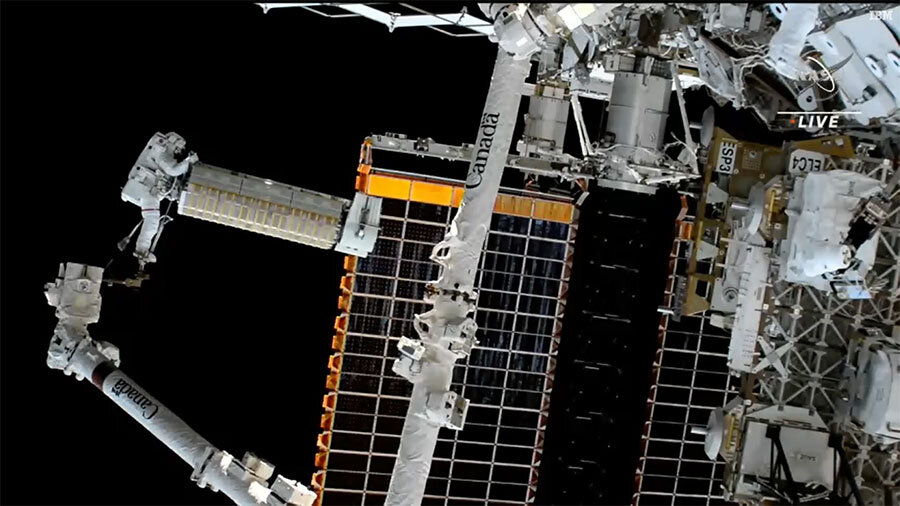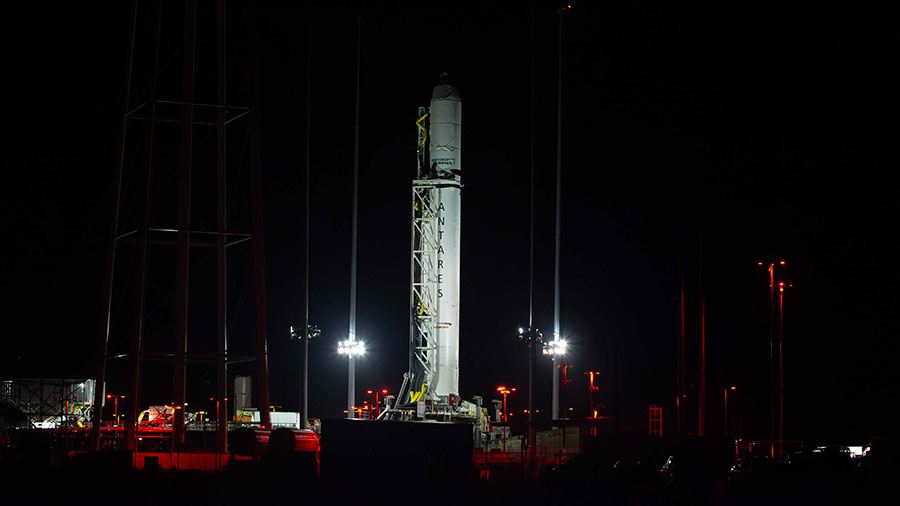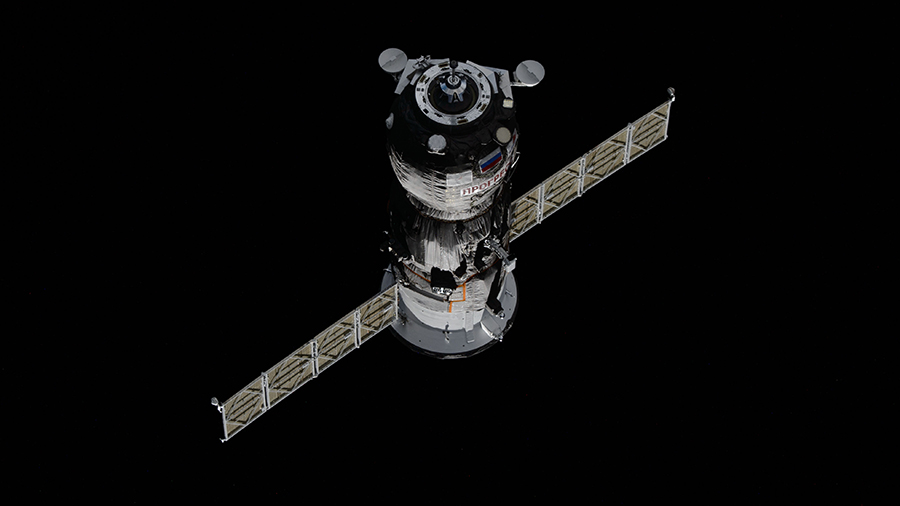
The Expedition 70 crew is unpacking the SpaceX Dragon cargo spacecraft following its arrival early Saturday morning. Meanwhile, the orbital residents are also continuing their research and maintenance activities following the International Space Station’s debris avoidance maneuver last week.
The hatches are open between Dragon and the orbital outpost following its arrival on Saturday. NASA Flight Engineers Jasmin Moghbeli and Loral O’Hara monitored Dragon’s arrival and entered the cargo spacecraft less than two hours after its docking. The duo along with Commander Andreas Mogensen and Flight Engineer Satoshi Furukawa spent a busy weekend unloading time-sensitive experiments for installation and activation aboard the orbital outpost.
The foursome worked throughout Monday transferring science freezers stocked with research samples from Dragon into the station and kicking off some of the new investigations. Mogensen from ESA (European Space Agency) and Furukawa from JAXA (Japan Aerospace Exploration Agency) configured space biology hardware and began offloading some of the 6,500 pounds of new crew supplies and hardware.
O’Hara and Moghbeli assisted the two international astronauts with both the science freezer work and the cargo transfers during the morning. O’Hara then spent the afternoon servicing components on a biological printer, the BioFabrication Facility (BFF), that is testing the printing of organ-like tissues in microgravity. Moghbeli set up new life science hardware, helped with the BFF work, and maintained standard life support and electronics hardware.
At the end of the day, the four astronauts joined the space station’s three cosmonauts reviewing updated emergency procedures while the new Dragon cargo spacecraft is docked to the Harmony module’s forward. Dragon will stay attached to Harmony until early December when it will return to Earth filed with station hardware and completed research for retrieval and analysis.
Veteran cosmonaut Oleg Kononenko began his day inside the Poisk airlock checking pressurization gear, then inspected windows on the Zvezda service module, and finally jogged on Zvezda’s treadmill for a fitness evaluation. Flight Engineer Nikolai Chub spent much of his day testing a 3D printer to make tools and supplies without depending on cargo missions from Earth. Flight Engineer Konstantin Borisov deactivated a camera remotely controlled by students on Earth, inspected Roscosmos laptop computers, and cleaned ventilation systems.
On Nov. 10, the International Space Station’s Zvezda service module engines were fired for five minutes and 16 seconds beginning at 10:07 a.m. to maneuver the complex away from the predicted track of an orbital debris fragment. The maneuver had no effect on the rendezvous and docking of NASA’s SpaceX 29th commercial resupply mission, which docked to the space station at 5:07 a.m. Nov. 11 after launching two days prior.
Learn more about station activities by following the space station blog, @space_station and @ISS_Research on X, as well as the ISS Facebook and ISS Instagram accounts.
Get weekly video highlights at: https://roundupreads.jsc.nasa.gov/videoupdate/
Get the latest from NASA delivered every week. Subscribe here: www.nasa.gov/subscribe




